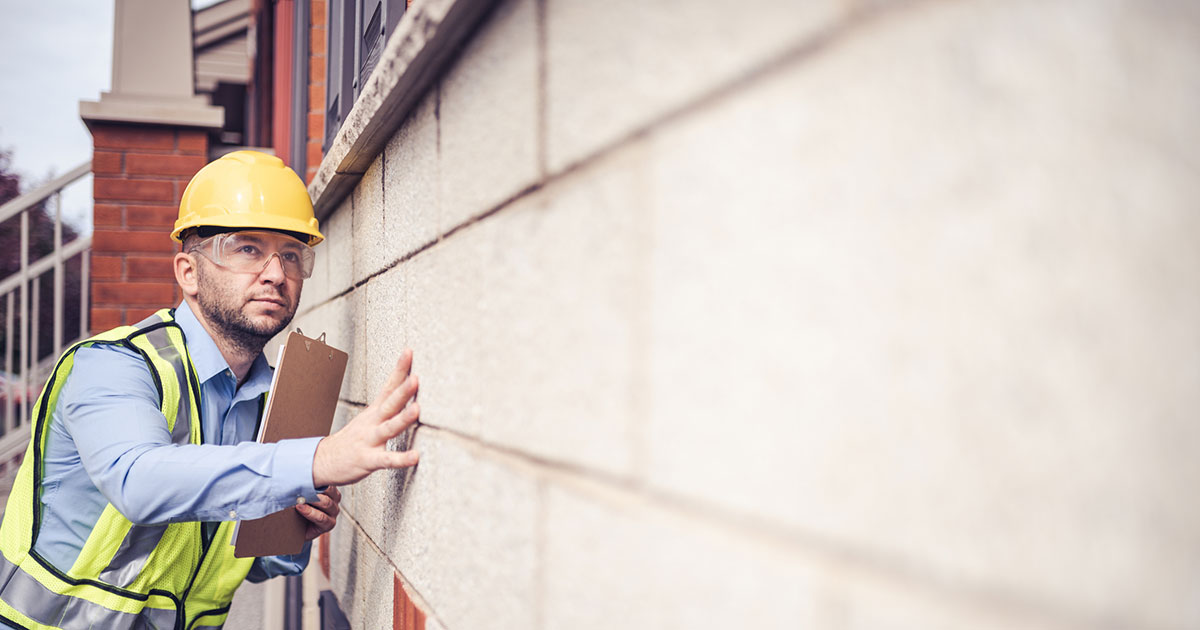
Discovering an undisclosed problem shortly after moving into a newly purchased house can be an aggravating experience for a new homeowner.
It is particularly frustrating for the homeowner who obtained a pre-purchase inspection as part of the house purchase. When the basement of the house begins to experience water intrusion after every rain, the homeowner begins to theorize that the home inspector negligently overlooked critical signs during the inspection.
This article analyzes the legal responsibilities of home inspectors under Wisconsin law. It discusses the standard of care to which home inspectors are held, what observations home inspectors are required and not required to disclose, and considerations that impact inspector liability for property defects that were undisclosed during an inspection.
Licensure and Standards
In Wisconsin, home inspectors are required to be licensed under the oversight of the
Wisconsin Department of Safety and Professional Services.
 Kevin Trost, U.W. 1998, is the founding member of
Trost, LLC, in Madison, where his practice focuses on real estate, construction, and contractual matters.
Kevin Trost, U.W. 1998, is the founding member of
Trost, LLC, in Madison, where his practice focuses on real estate, construction, and contractual matters.
To become a licensed inspector, a person must complete 40 hours of home inspection training, pass a national exam and a state exam, and submit the appropriate application with the required fee. Thereafter, continued licensure requires completing 40 hours of continuing education every two years.1
Under the 1997 Home Inspector Act, Wis. Stat. 440.975, et. seq., home inspectors are held to a level of care in the conduct of their inspections. Inspections are required to focus on the “observable systems and components of improvements to residential real property that are readily accessible.” Inspectors are required to perform a “reasonable competent and diligent inspection.” However, an inspection need not be “technically exhaustive” in order to be reasonably competent and diligent.2
One of the aims of a home inspection is to alert a prospective home purchaser to defects with the house that a seller failed to disclose (either innocently or maliciously) on the real estate condition report. By identifying defects prior to closing, the buyer and seller can address them in the context of the sale.
Limitations of Inspections
When evaluating a home inspector’s potential liability for unreported defects following the inspection, it is necessary to consider certain limitations and privileges afforded to home inspectors under Wisconsin law.
The statutes exempt home inspectors from any obligation to comment on certain subjects:
Components of a house that are not readily observable. Inspectors are not required to move objects that obstruct visibility.3 An inspector is unlikely to observe or comment on whether a basement foundation is filled with cracks that let water into the house where significant personal property is stored along the foundation walls (or the basement walls are finished). In the same vein, an inspection conducted in the winter of a snow-covered roof is unlikely to be of great value in describing the condition of the roof.
Adequacy of mechanicals and appliances. Regulations require the inspector to comment on whether the furnace and air conditioning are operational. Nevertheless, the inspector has no obligation to advise whether those systems are adequate for the house.4 If the HVAC mechanicals are inadequately sized, a purchaser may discover after the sale that the far reaches of the house are a bit too cool in the winter and a bit too warm in the summer.
Rodents and pests. An inspector is under no obligation to mention evidence of rodents, insects, or pests. While a conscientious inspector may suggest a prospective homebuyer request a specialized pest inspection, the inspector is under no legal obligation to do so. The inspector may simply remain silent after observing mouse or bat droppings in the attic. Moreover, an inspector is only obligated to observe the attic from the scuttle hole. As a result, even if the attic is harboring pests, the inspector may not be in a position to spot evidence of pests from that singular vantage point.5
Liability Analysis
Despite these statutory exceptions to an inspector’s professional reporting responsibility, an inspector may still bear liability where defects were missed during an inspection.
By law, an inspector must disclose any observed defects. Defects are defined to include any conditions that if “not repaired, removed, or replaced, would significantly shorten or adversely affect the expected normal life of the component of the improvement.”6
Inspectors may be held responsible for their failings under a professional negligence standard. A claim must be initiated within two years of the inspection, as the statute of limitations for claims against home inspectors does not afford a potential claimant the luxury of waiting until a problem is discovered.7
A home inspector can offer valuable insights about a building’s structure and its components. Nevertheless, a favorable inspection report does not necessarily mean a property contains no defects. The house may still harbor problems that the home inspector could not observe or which the inspector was not required to mention.
These limitations should be given consideration when evaluating whether a home inspector bears liability for a defect that is discovered shortly after a home purchase.
This article was originally published on the State Bar of Wisconsin’s
Solo/Small Firm & General Practice Blog of the Solo/Small Firm & General Practice Section. Visit the State Bar
sections or the
Solo/Small Firm & General Practice Section web pages to learn more about the benefits of section membership.
Endnotes
1 Wis. Admin. Code § SPS 131.
2 Wis. Stat. § 440.975(2).
3 Wis. Stat. § 440.975(2) and (6)(f).
4 Wis. Stat. § 440.975(4).
5 Wis. Stat. § 440.975(6)(k).
6 Wis. Stat. §§ 440.975(3) and 440.97(2m).
7 Wis. Stat. § 440.977.
